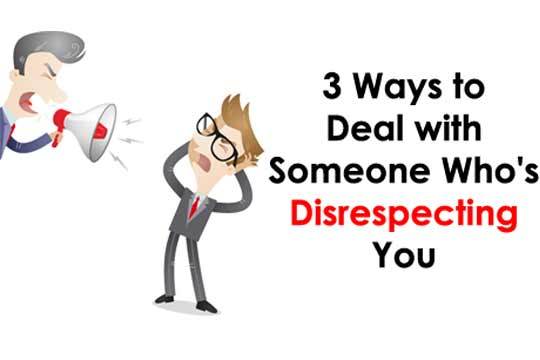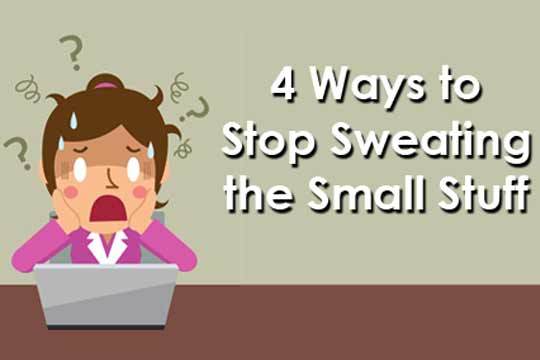Helene Lerner's Blog, page 15
June 22, 2016
Unsure? When to Say YES, When to Say NO

Sometimes we find it difficult to know when it's in our best interest to say no. We know setting boundaries is important, but the line can be blurry. Here are some examples culled from my experience and that of other women on when saying yes is appropriate and when it is best to say no. You could probably write your own list as well.
Say "yes" when:
It is an emergency and no one else is left at work to help out.Taking the assignment will give you heightened visibility with top management.You've said "no" several times recently, and you don't want to lose an office ally.What's being asked doesn't require much of your time.Say "no" when:
You are overworked and one more commitment will totally overwhelm you.You've moved on to another job and a co-worker from your former assignment is constantly asking for advice in the form of evening e-mails. You're not that fond of the person asking for help, and you don't want to go out of your way for him.You've been working late every night for a week and a half, and your family needs some quality time with you.Adapted from The Confidence Myth: Why women undervalue their skills and how to get over it by Helene Lerner
5 Signs Someone Can't be Trusted

Trust is the pillar of any successful friendship or relationship. Don’t rely on someone if they:
Can’t compromise: An expert once said, “trust gets built through a series of tiny moments where our partner temporarily compromises their happiness for ours.” Someone who is self-centered and inflexible not worth your time.
Don’t trust others: Don’t put faith in someone who relies only on themselves. How can you expect to trust someone who doesn’t open up to others?
If their actions don’t match their words: If they say one thing and act in a different way, it’s time to move on.
Have no self-control: Someone’s lack of emotional stability could be a red flag that they can’t be counted on.
Give you bad vibes from the start: Don’t wait to see what happens with someone you’re unsure of. Always trust your gut.
- Barbara Bent
3 Ways to Deal with Someone Who's Disrespecting You

When we feel slighted, we may want to react in a big way. But that can lead to trouble, so try these tactics instead:
Be brave: Whether it was a boss who made a jab at your work or a friend who spilled a secret, keep your composure. Showing that their actions affected you will make it easier for them to continue their poor behavior.
Follow up: Directly address that person after the incident. Firmly state how they crossed the line and how it made you feel.
Set an example: Don’t fight fire with fire. Being disrespectful back to them will be worse in the long run, so never stoop to their level.
- Barbara Bent
June 21, 2016
4 Ways Confident Women Get What They Deserve

Confident women have a no-nonsense attitude. They produce, and people rely on them. What else do they do to command respect? Read on:
They’re direct: If they ask for something, they get right to the point and don’t go around in circles. They’re respectful of other people’s time.
They’re good negotiators: They are clear about what they want and what they are willing to give up. If things don’t go their way, they don’t take it personally and they keep going.
They’re good listeners: They build relationships by asking questions and getting other people to share their insights and their stories.
They stick to their priorities: If an issue is important, they stand by it and don’t let anyone tell them otherwise.
- Barbara Bent
3 Steps to Clear Up a Misunderstanding

Sometimes we say one thing and someone misconstrues our words. Miscommunications can create havoc in any relationship. Here’s what to do when that happens:
Revisit the conversation: Allow the person to explain why they were upset about what you said. This way, you won’t make the same mistake twice.
Clear it up: Explain that their interpretation was not what you meant.
Find a common bond: What do you both agree upon? Explore how you could avoid miscommunications in the future.
- Barbara Bent
When Your Emotions Cause You Physical Pain: How to Overcome It

Caring for the mind is just as important as caring for the body. In fact, one cannot be healthy without the other.
-Sid Garza-Hillman
While no one thinks twice about getting butterflies in the stomach before going on stage or the ache in your chest if your crush throws you a smile, when you start talking about emotions causing physical pain, people look at you like you’re talking about voodoo. Yet, here at Ask Dr. Nandi, we’ve got no doubt that emotions, both good and bad, have huge impacts on the body and can literally cause you physical pain.
Psychogenic pain, sometimes called psychalgia, is real pain caused by emotional factors. Most often this pain manifests in headaches, back pain, or stomach issues, including cramping, diarrhea, and even Irritable Bowel Syndrome (IBS). According to studies done on the brain, there is no way to differentiate between pain caused by physical ailments and those caused by emotional. Although most people have experienced this kind of pain in mild forms, the idea of psychogenic pain is still stigmatized and not considered real pain by too many people.
Dr. Nandi wants you to know about psychalgia so you can become your own health hero and pay attention to what your body is trying to tell you when it comes to your physical and emotional well-being.
In What We Say
If you’re hesitant to believe that emotions can cause physical pain, take a moment to look at these common sayings.
That child is a pain in the neck.She’s suffering from heartache.He was so mad he saw red.That was gut-wrenching.I was so nervous, I was sick to my stomach.I’ve got too much on my shoulders right now to take on another project.Pain Happens in the Brain
No matter where you hurt on your body, the pain is actually occurring in the brain. Nerve signals run back and forth from across the body and once the brain receives a signal that there has been tissue damage, a neurological process occurs that makes you feel pain. It makes sense that other stimuli, such as stress, sadness, or anger, can also cause the brain to make a similar neurological response. For those who experience chronic pain, which is pain that lasts long after the body has healed, chances are emotional issues may cause it.
Old Medicine
While this may sound new age, it’s old medical philosophy. Ancient Chinese medicine had no doubt that emotions interfered with the body and its functions. Even modern medicine agrees that stress and anxiety can slow the body’s ability to heal, increase a person’s risk of heart disease and obesity. It may also have something to do with the development of Type 2 diabetes.
If you’re experiencing physical pain but don’t know the cause, Dr. Nandi wants you to step back and examine your mental and emotional health. Physical symptoms of emotional pain are the body’s way of reminding you that you have issues that need to be dealt with.
Partha’s Rx
Learn relaxation techniques and use them regularlyPractice yogaFind forgivenessBe in the presentPractice mindfulness

Partha Nandi M.D., F.A.C.P is the creator and host of the internationally syndicated medical lifestyle television show, Ask Dr. Nandi. Dr. Nandi delivers passionate and inspiring talks to empower the world in his mission, “To Be Your Own Health Hero.”
June 20, 2016
4 Ways to Stop Sweating the Small Stuff

Life is too short for constant worry. Often, the things we worry about are trivial and not worth our time. Here are a few pointers on how not to get bogged down in the future:
Uncertainty is part of life: It’s useless to worry about something that might never happen.
Don’t waste energy: Focus only on what you can control.
Step back and analyze the situation: Separating yourself from the problem gives you room to think logically.
Distract your worried mind: Stop obsessive thinking by focusing on something productive.
- Barbara Bent
5 Things to Remember When You're in a Bad Mood

The feeling may ache, but know that there’s light at the end of the tunnel. Here are 5 things to remember when you feel down in the dumps:
Don’t take things personally: Rejection often puts us in a bad mood. Be proud of your accomplishments and keep in mind that you will never be able to please everyone (and you shouldn’t try to).
Distractions can help: Even if it’s a mundane chore, doing something else will take your mind off of your sadness.
Failure is inevitable: Hold yourself accountable for your mistakes and learn each time you make one.
You’re not alone: Knowing that there are others in the same boat can ease the pain. Not everyone has a great day every day.
You’re not Superwoman: If your schedule looks swamped, remember that you can’t accomplish everything at once. Complete one task at a time.
- Barbara Bent
How to Deal with Manipulators

Even the best of relationships can be challenging at times. But when you’re dealing with a manipulator, you’re dealing with toxic behaviors. They can push your buttons and be gone before you know what’s happening. What can you do? Perhaps more than you might think.
What You Need to Know
Gossips
Decide what you’re willing to tolerate and participate in and where you will draw the line. That’s easy to say but not always easy to do. Gossips can manipulate you with their clever disclaimers: “I normally wouldn’t repeat this but I think you would want to know.” Protect your reputation and integrity and don’t give gossips an opportunity to drag you down to their level.
Controllers
Every family and company has at least one controller. They try to control the conversation, push beliefs and values on everyone else and they think they know what’s best for you, me, and everyone on the entire planet. Their behavior is masking a deep insecurity and they need to control everyone around them to feel important and appreciated. In fact, if you resist their manipulation they’re likely to raise the ante by saying, “I’m just trying to help you, but clearly you don’t appreciate that.”
Know-It-All’s
Know –It-All’s love to talk and they need an audience. The more they talk the more convinced how smart they are and how uninformed you are. With that said, sometimes Know-It-All’s can be an asset, so use them. If they know something you don’t, ask away and be appreciative. However, Know-It-All’s need to have the last word and they need to be right, whether you’ve asked their opinion or not. The sooner you set limits with them the better.
What You Need to Do
Be Aware
You don’t have to be judgmental and cynical to know there are people who either don’t know how to “play nice” or just don’t care. When it comes to manipulators you have to be alert and aware or you will end up on the receiving end of their toxic behavior.
Be Agile
Being agile is about thinking and acting fast. You have to speak up fast when someone is violating your boundaries and you have to be flexible enough to experiment with what will stop a manipulator from assaulting you.
Be Assertive
Manipulators are aggressive in their behavior. They act on impulse and they don’t take your hints that you’re uncomfortable with what they’re doing. You can’t be timid with manipulators; you have to be assertive.
Examples of What to Do
Walk away—you don’t have to explain or justify yourself—walking away will say what’s on your mind without you saying a word.
Change the subject—interrupt the gossip, the controller, or the know-it all immediately before they pull you into their dysfunction.
Confront them—care enough about yourself and them to give them a chance to change their behavior then and there.
Avoid them—By definition, a manipulator has to have something or someone to manipulate. Don’t let that be you; stay away from them as much as possible. The best action is preventative action.
Educate them—sit down in a private place and let them know you’re uncomfortable with their behavior. Stick to describing their behavior without labeling it as manipulation or calling them a manipulation. And since they’re not worried about offending you, don’t worry about them not liking what you have to say.

- Alan Allard, Creator of Enlightened Happiness
June 17, 2016
7 Things You Should Never Say or Do at Work

In a professional environment, you’ve got to play your cards right. Stay a step ahead by never doing or saying any of these:
“I think...”: Say “I believe” instead. It shows you have a little more conviction in your statement.
Being hard-headed: Collaboration is vital in the workplace. Have your personal opinion, but don’t let it keep you from being a team player.
“That’s not my job”: If someone asked a favor, it’s probably important. If you feel that it’s unreasonable, there are kinder ways to decline or show that you’re too busy.
Showing up late: Don’t disrespect people by running late or wasting time in a meeting.
“This isn’t fair”: That’s fine to say in the comfort of your home, but watch your tongue around coworkers. It looks like you’re whining--not pretty.
Giving the cold shoulder: Don’t be stubborn by refusing to talk to someone you work with. No matter if you’re the boss or the assistant, it looks bad.
“I’ll try”: This phrase is just another way to complain. Speak with intention.
- Barbara Bent
Helene Lerner's Blog
- Helene Lerner's profile
- 9 followers



